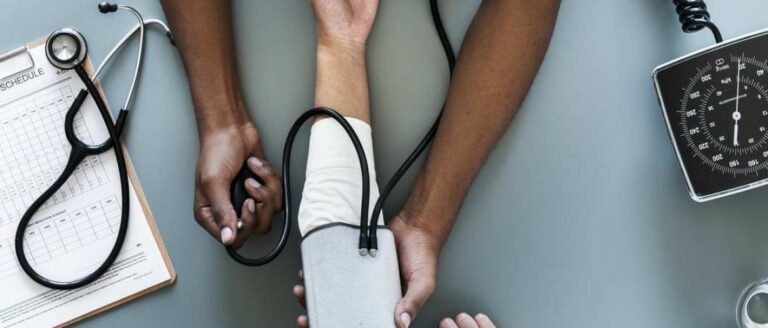Heart palpitations can be an unsettling experience, often raising the question of what is causing the symptom. Can stress lead to heart palpitations? In some cases, research has shown a strong correlation between stress and an increase in heart rate and palpitations.
Stress increases cortisol release, leaving your heart feeling skipped a beat or racing for no reason. Research suggests that psychological stress and trauma, such as experiencing loss or difficult life transitions, can trigger it. Anxiety and panic attacks are also linked to increased bouts of palpitations. If you feel frequent episodes at the same time that you are feeling particularly stressed, then it may be wise to speak with a coach, doctor or other health professional about treatment options.
Symptoms of Heart Palpitations to look out for
Heart Pounding or Racing
This involves a noticeable increase in heartbeat intensity and rate, including a feeling of heart pounding or racing. Heart palpitations can often be described as “skipping beats,” In some cases, individuals may feel their hearts flipping, fluttering, or throbbing more intensely than average. Heart pounding or racing should always be taken seriously and evaluated by a doctor, as it could signify an underlying medical condition related to the heart.
Chest Pain or Discomfort
Chest pain or chest pressure can be experienced anywhere from the neck to the upper abdomen. It often accompanies other symptoms like sweating, anxiety, fatigue, and dizziness. While it’s important not to ignore any chest pain, it is vital to seek medical attention if you experience chest pain or discomfort in combination with any of these other symptoms.
Shortness of Breath or Trouble Breathing
Shortness of breath, or dyspnoea [1] (difficulty or laboured breathing) is often a sign that palpitations are occurring; when the heart begins to beat abnormally, the body may not be getting enough oxygen which can lead to feelings of breathlessness. If caused by a severe episode of palpitations, shortness of breath can come on suddenly, or it can occur gradually as part of chronic palpitations. Dyspnoea can range from uncomfortable to severe, depending upon the severity and persistence of the arrhythmia causing it. A medical professional should evaluate shortness of breath due to heart rhythm disturbances for proper diagnosis and treatment.

Light-headedness and Sweating
Light-headedness and sweating are two common symptoms of heart palpitations experienced by many people. It is considered an uncomfortable experience associated with a rapid, fluttering, or irregular heartbeat. Ignoring these symptoms could put your heart at risk, so if you experience them, it’s essential to seek medical advice as soon as possible.
What are common causes of Heart Palpitations
Anxiety and Stress
Anxiety-induced palpitations create a fluttering feeling in the chest, often accompanied by an increased heart rate. While this sensation might feel alarming, it is usually harmless and does not signify any underlying severe health issues. It’s essential to reduce any unhelpful sources of stress or anxiety in our lives, as stress levels can be related to cardiac problems such as hypertension and coronary artery disease.
Simple lifestyle changes such as providing yourself with adequate rest, practicing yoga or mindful meditation, or engaging in activities that help you relax can all contribute toward decreased feelings of anxiety and therefore reduce the risk of palpitations. Stress, especially in the workplace, should be avoided, for it can result in burnout (In case you are undergoing chronic stress, it is advisable to seek an appointment with an expert stress Coach to avoid burnout).
Too Much Caffeine or Energy Drinks
Too much caffeine or energy drinks can harm your health, causing palpitations. Caffeine acts as a stimulant, increasing the heartbeat and elevating blood pressure. It is important to remember not to overdo it when drinking energy drinks and caffeine beverages, as this condition can be pretty uncomfortable and put a strain on your cardiovascular system. Consuming caffeine in moderate amounts should not have any adverse effects; however, if you experience palpitations, it may be best to cut back on caffeinated-containing beverages altogether.
Smoking Cigarettes or Using Tobacco Products
Did you know that smoking affects the entire cardiovascular system, with particular attention to the blood vessels and circulation to the heart. Smoking can lead to the hardening of the arteries, which reduces blood flow and increases blood pressure on the artery walls; this pressure, in turn, produces an irregular heartbeat. Like other adverse health impacts of smoking, such as cancer or lung disease, prolonged habitual smoking can have long-term adverse effects on an individual’s cardiac health and increase their risk for life-threatening events like heart attacks.
Excessive Alcohol Consumption
Excessive alcohol consumption can significantly affect your heart health, especially concerning palpitations. Drinking excessively can increase the risk of an irregular heartbeat and can also cause arrhythmias – interruptions in the regular beating pattern of the heart. These irregularities can lead to discomforts, such as chest pain and shortness of breath, as well as increased risk for lasting damage to the cardiovascular system. If you already experience palpitations from time to time, excessive drinking may be exacerbating them, making it essential to monitor your alcohol intake. Limiting alcohol intake has various long-term health benefits, including keeping your heart functioning optimally.
Overuse of Prescription Medications
Overwhelmingly long-term use or overdosing on any form of medication can cause an increase in heart rate and tension, leading to heart palpitations. It is essential to take caution when considering many prolonged prescription drugs, as it will increase the chances of symptoms such as heart palpitations. Speak with your doctor about the potential effects of overusing any prescribed medication.
What Effects do Heart Palpitations Have on the Body?
Heart palpitations are common episodes of irregular heartbeats and can cause numerous effects on the body. One of the effects is chest pain due to increased pressure within your chest that pushes against your chest wall. Another effect is shortness of breath due to your heart not pumping enough oxygen through your body with each beat. Additionally, light-headedness and dizziness may be caused by reduced blood flow throughout the body. Extra fatigue due to the effects exerted by your cardiovascular system on all other organs can also be experienced with frequent palpitations. Lastly, changes in blood pressure can also occur due to the effects on organ systems, such as the nervous system. It is vital to keep track of any effects from heart palpitations that happen regularly and consult with a physician for potential treatments or further diagnosis if necessary.
How Can Heart Palpitations be Prevented?
Heart palpitations can be prevented by taking particular lifestyle and dietary steps. Getting regular, moderate exercise and maintaining a healthy weight is recommended. Eating a balanced diet low in fat, salt, and sugar enables the heart and all other organs to function optimally. Lastly, it is vital to reduce stress by managing negative feelings by watching your alcohol consumption and getting at least seven hours of quality sleep each night. All these changes will help prevent this and reduce the chances of other cardiovascular issues.
Can we help you?
Leave us your information and one of our coaches will contact you in 24H

5 Tips for Dealing With Heart Palpitations When They Happen
Heart palpitations can be an unsettling experience, so it is essential to know what steps to take when they occur.
- Practice a few deep breaths to calm yourself down
- Try to relax by drinking water or even lying down for a few minutes
- Avoid activities that could exacerbate the symptoms, such as drinks with caffeine or engaging in intense physical activity
- Talk with your doctor if these episodes are recurrent
- Keep track of your episodes and what could have triggered them
What Help is Available for Heart Palpitation Sufferers?
Sufferers of heart palpitations can take comfort in knowing that a wide range of help is available. One of the first steps to take is to consult your doctor, who will be able to assess the underlying cause of your symptoms and prescribe appropriate treatment. Depending on the cause, this may include dietary or lifestyle changes, medications, tests, or further referral for specialist help if necessary. It’s also important to recognize any emotional triggers and seek counselling if you feel overwhelmed. Fortunately, many people with this find relief in relaxation techniques such as meditation, yoga, deep-breathing exercises, and even self-hypnosis. Together with professional help, these relaxation techniques can positively impact physical and mental well-being.
FAQ
References
- Pubmed.gov – Dyspnoea: Pathophysiology and a clinical approach – 13/01/2023
Link to page on pubmed.gov






